Explore the profound impact of false narratives on post-conflict reconciliation and how dialogue fosters healing in our latest insights and strategies.
The journey towards reconciliation in conflict scenarios is complex and fraught with challenges. Central among these is the pervasive impact of false narratives and dehumanising language. False narratives and disinformation are not mere inaccuracies; they are potent tools that can significantly hinder reconciliation and peace-building efforts. They erode trust, block empathy, reinforce divisions, and ultimately prevent constructive dialogue and understanding. Our work focuses on understanding these impacts and developing strategies to counteract them, fostering environments where dialogue and understanding can flourish.
Recently, the BBC reached out to us to provide insight into the impact of false narratives and disinformation on efforts for post-conflict reconciliation. Our Programme Development Lead, Harriet Vickers, spoke with them, sharing our learnings and perspectives. This prompted us to reflect on our understanding and expertise of how these elements affect long-term reconciliation efforts, drawing on insights we’ve shared in broader conversations and in our workshops.
Understanding the Impact:
There are multiple ways in which false narratives and dehumanising language, not only furthers and adds to ongoing conflict, which impacts far beyond those directly engaged or impacted by violence, but also severely harms any future efforts of repair or reconciliation:
- Eroding Trust: Trust is foundational to reconciliation but is quickly undermined by conspiracy theories suggesting deceit and hidden agendas. These narratives foster suspicion, making open dialogue difficult and delaying the healing process.
- Blocking Empathy: Dehumanising language reduces people to stereotypes, impeding our ability to empathise and understand others’ experiences, crucial for collective healing.
- Reinforcing Divisions: False narratives simplify conflicts into ‘us versus them’, entrenching divisions and making shared understanding and future collaboration challenging.
- Impacting Mental Health and Social Cohesion: These narratives exacerbate psychological trauma and erode community cohesion, essential for rebuilding fractured societies.
- Creating Barriers to Justice and Accountability: They distort the truth, hindering justice and accountability processes vital for reconciliation.
- Widening Social Rifts Beyond Direct Conflict: False narratives extend their influence, affecting broader societal perceptions and interactions, leading to discrimination and division.
Our Strategies in Action:
An example of witnessing the transformative power of dialogue was during a ‘world café’ dialogue session we were facilitating aimed at supporting a community experiencing conflict. A discussion on local business changes revealed misconceptions about migrant populations, highlighting broader socio-economic factors. A ‘lightbulb’ moment exemplified how open, respectful dialogue can shift perspectives and foster understanding.
Building Bridges Through Understanding and Dialogue:
We prioritise building relationships and trust, employing dialogue as a tool for non-violent conflict resolution. Our methods include activities to foster environments conducive to understanding without agreement, promoting critical thinking, and sharing multiple perspectives.
We create spaces for individuals to share, listen, and reflect, helping to replace entrenched views with new insights and foster an environment conducive to reconciliation. Our work emphasises building relationships and trust, recognising their importance in engaging in dialogue on sensitive issues. We use interactive methods to encourage participants to explore different perspectives and promote a culture of empathy and critical thinking.
In fostering environments where diverse opinions can coexist, we employ dialogue as a non-violent tool for conflict resolution, developing tools and vocabulary that support non-violence and understanding. By remaining conscious of the wider narratives and using inclusive language, we help individuals feel heard and respected, valuing different perspectives as part of the journey towards shared understanding and hope.
In a world that feels increasingly more polarised and divided, our work at the Tim Parry Johnathan Ball Foundation is more important than ever. We’re dedicated to creating spaces where every voice is valued, contributing to a narrative of shared understanding and hope.
Join Us in Building a Legacy of Understanding and Reconciliation:
We invite you to join our mission in transforming divisive narratives into ones of shared understanding and hope. Support our work through donations, sharing this blog, attending workshops, or partnering with us. Together, we can build bridges towards lasting reconciliation.
Read our contribution to the full BBC story here:
For more insights, read the full story on the BBC’s report here: https://www.bbc.co.uk/news/world-middle-east-67760523.
About Us:
The Tim Parry Johnathan Ball Foundation was established in 1995 by Tim’s parents, Colin & Wendy Parry, in memory of the two young boys killed in the Warrington bombing in 1993. It is dedicated to fostering understanding and dialogue, supporting victims and survivors of conflict, and advocating for non-violent conflict resolution. We strive to create a legacy of peace and understanding by addressing the root causes of conflict.

